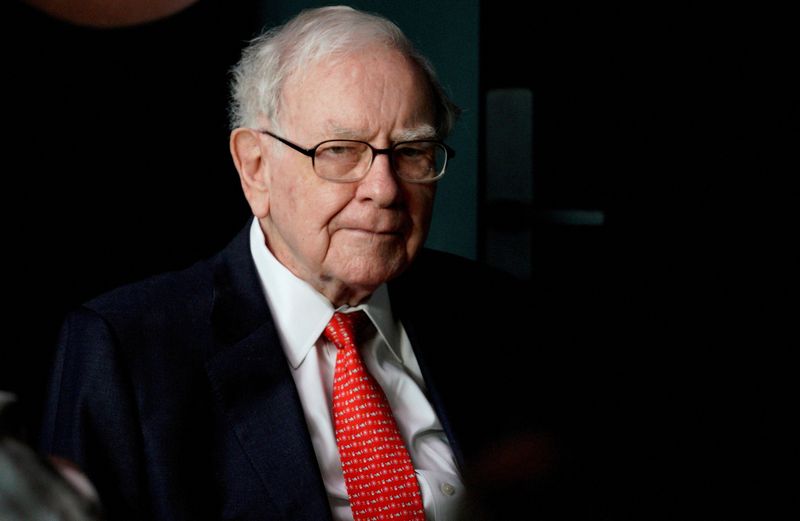By Jonathan Stempel
(Reuters) - Warren Buffett's Berkshire Hathaway (NYSE:BRKa) sold 70% of its investment in Activision Blizzard (NASDAQ:ATVI) in the second quarter, appearing to miss out on some gains when a federal judge said Microsoft (NASDAQ:MSFT) can complete its $68.7 billion purchase of the video game maker.
In a regulatory filing on Monday, Berkshire said it owned about 14.7 million Activision shares, or 1.9%, worth $1.24 billion on June 30, down from 49.4 million shares, or 6.3%, on March 31.
The filing did not discuss the prices of any sales, or whether Berkshire bought or sold Activision stock in July.
Berkshire did not immediately respond to a request for comment.
The Activision investment was a form of arbitrage, with Buffett viewing investors as too pessimistic that regulators would approve combining Microsoft's Xbox gaming console business with the publisher of the "Call of Duty" and "Candy Crush" franchises.
One of Berkshire's portfolio managers invested in Activision in late 2021, with Buffett boosting the stake to nearly 10% in 2022.
The billionaire told shareholders at Berkshire's annual meeting in April 2022 he did not know whether regulators would bless the merger, which valued Activision at $95 per share, but "one thing we do know is Microsoft has the money."
Berkshire's remaining Activision stake - 14,658,121 shares - is exactly the size it was before Buffett started buying, suggesting that he has exited the arbitrage bet.
Activision shares rose 10% to $90.99 on July 11 after U.S. District Judge Jacqueline Scott Corley in San Francisco rejected U.S. Federal Trade Commission arguments that the merger would hurt competition in cloud gaming, consoles and subscription services.

Britain's competition regulator, the Competition and Markets Authority, also opposed the merger, but agreed to a stay on Microsoft's appeal to allow more time to resolve their dispute.
Berkshire is based in Omaha, Nebraska. It also owns dozens of businesses such as the BNSF railroad and Geico car insurer, as well as stocks such as Apple (NASDAQ:AAPL) and Bank of America (NYSE:BAC).